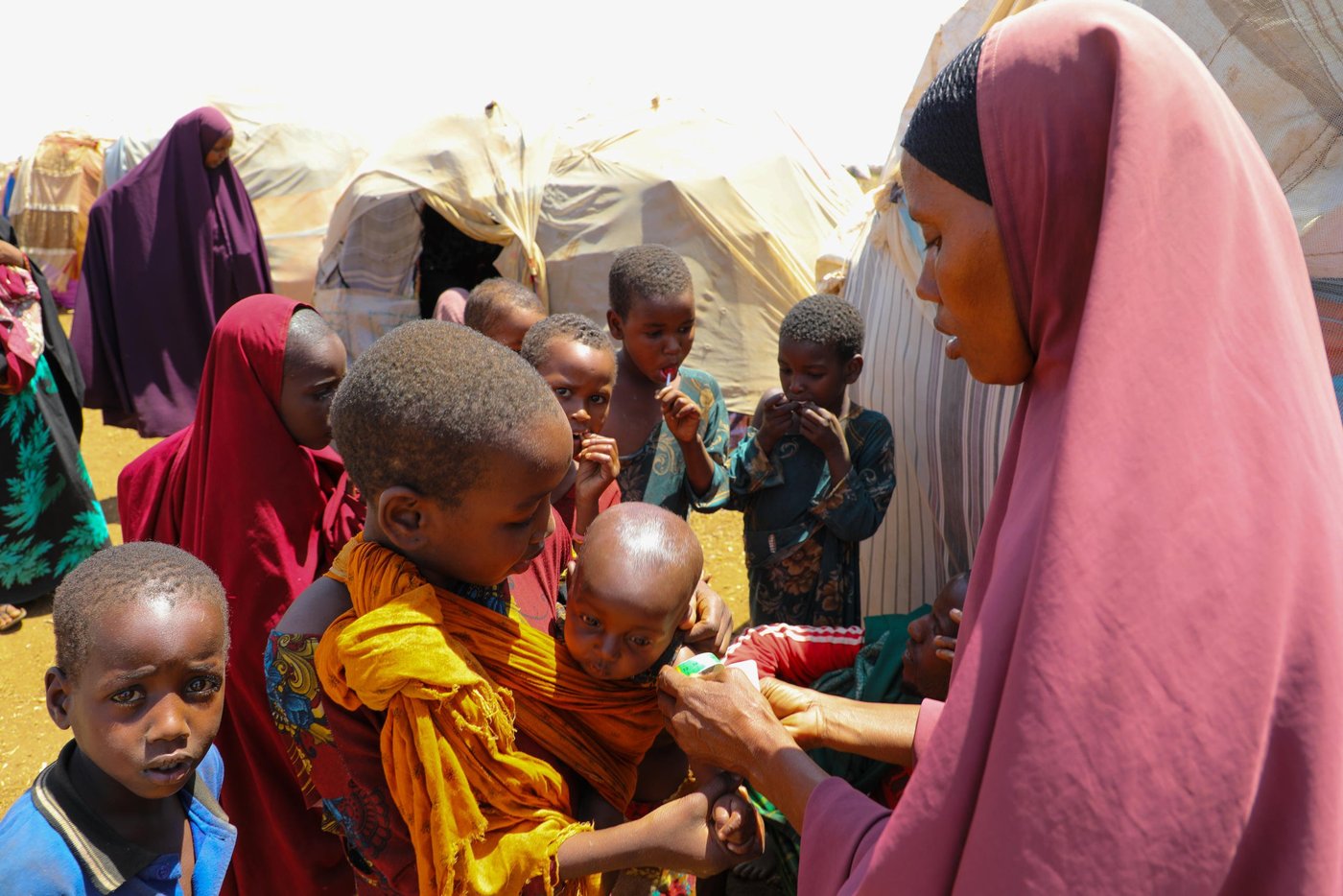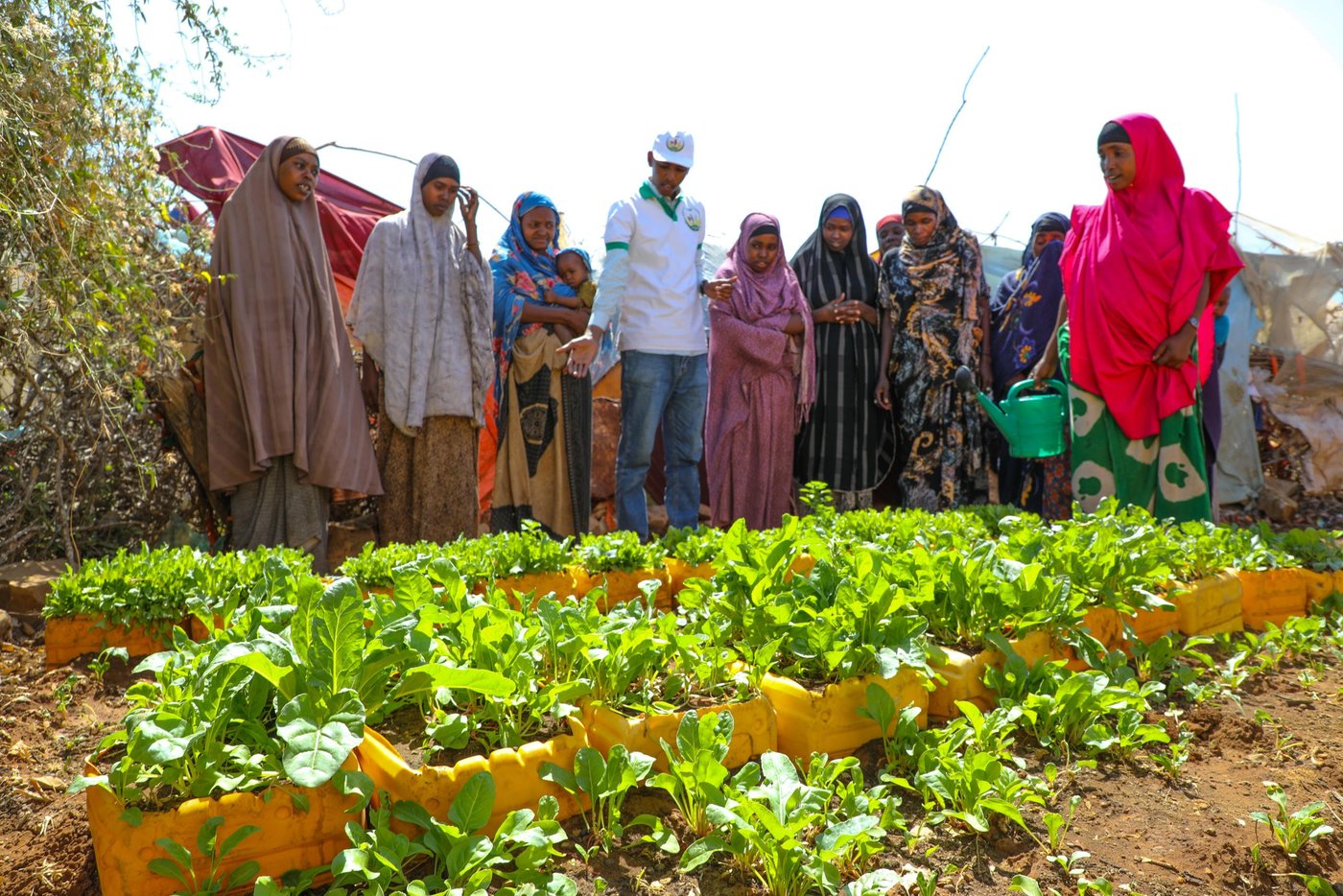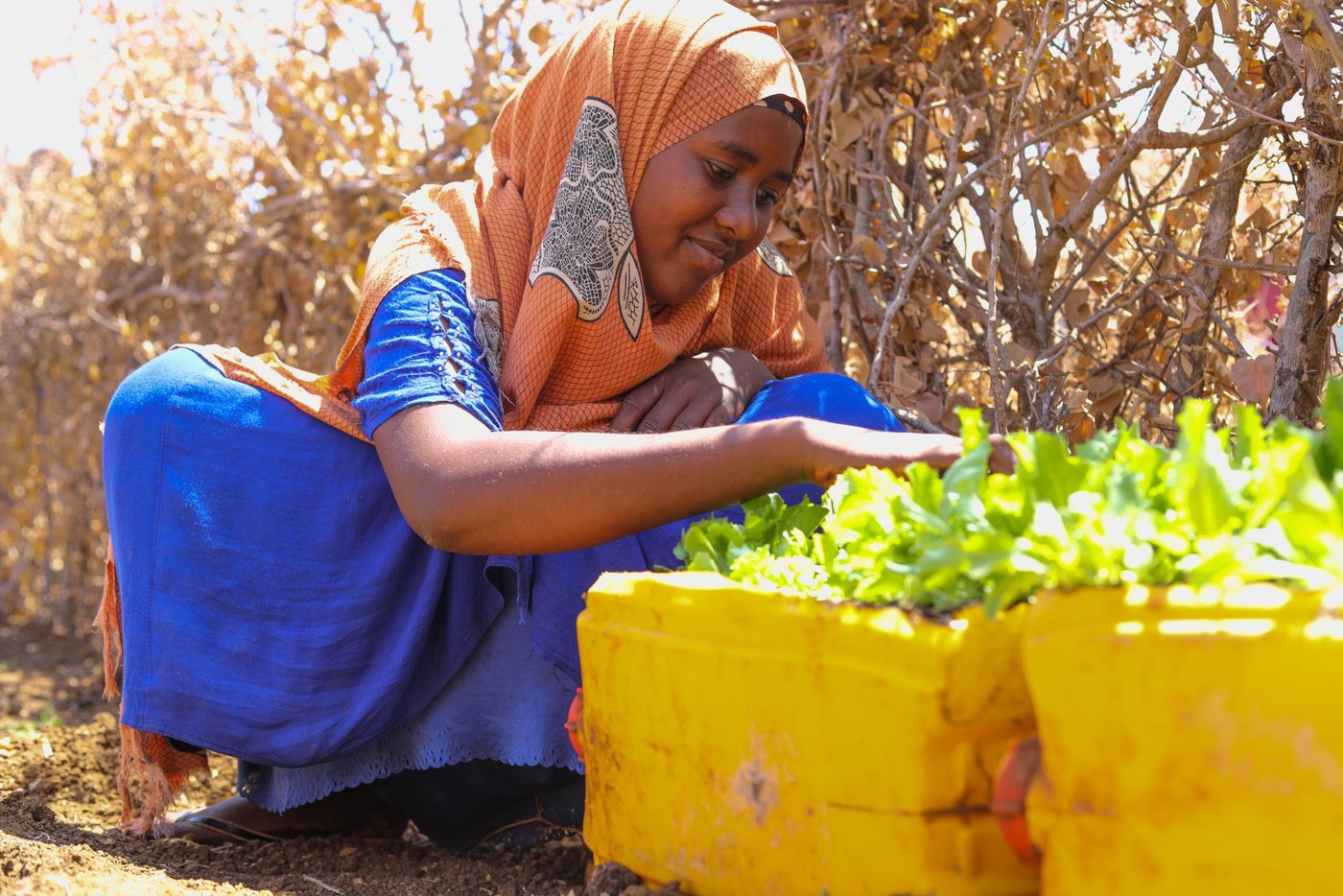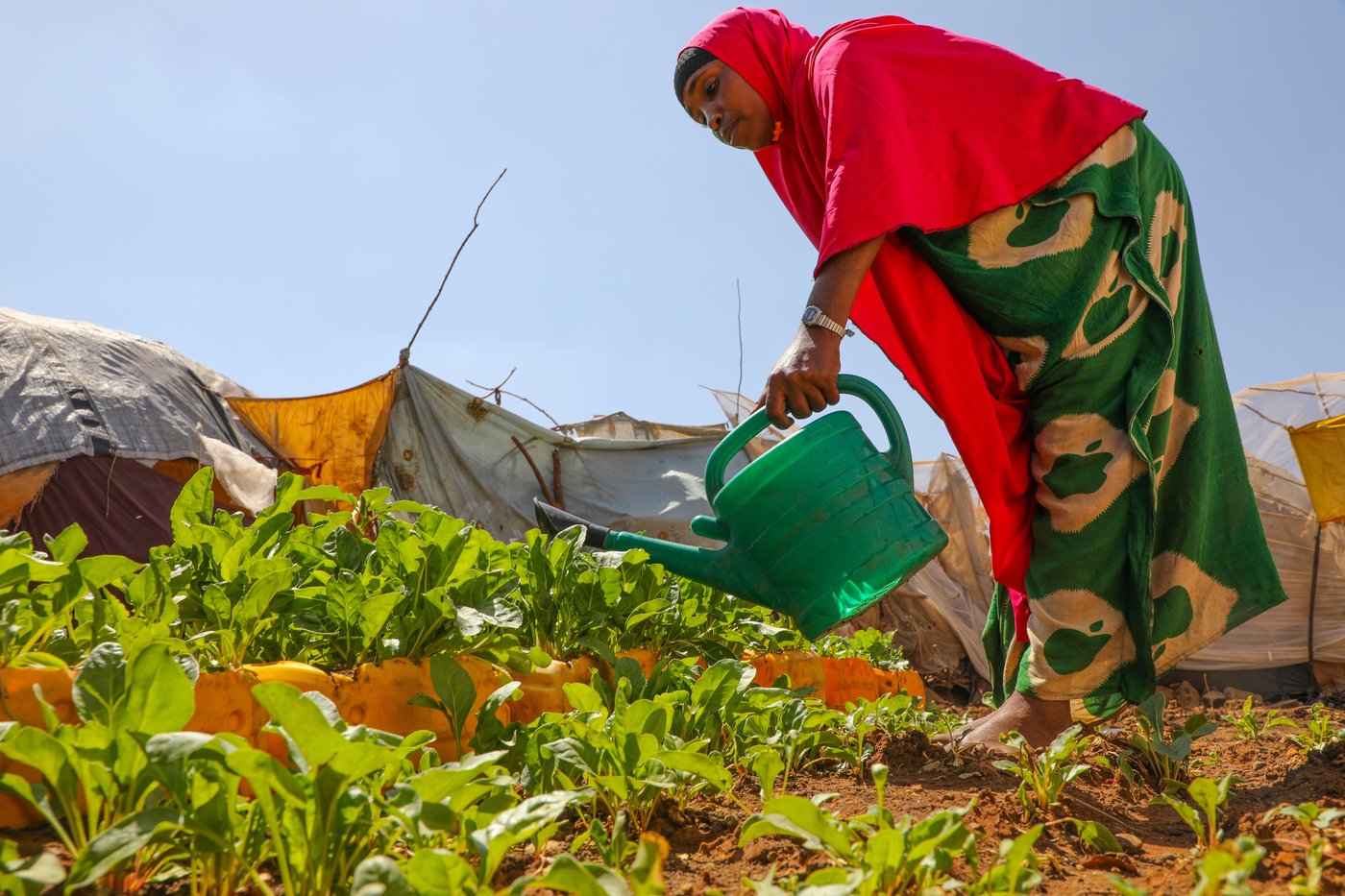The root cause of the crisis, is the fast-deteriorating climatic conditions both within the country and regionally. This is evidenced by the reduced rainfall for the last five consecutive seasons. For a country that relies on rain for its pastoral and agro-pastoral livelihoods, the impact has been devastating, with several parts of Somalia expected to face famine between April and June.

In the Southern and central regions of Somalia, Baidoa is considered the hotspot of famine risk; the Building Resilient Communities in Somalia (BRCiS) Consortium is working with displacement-affected communities to mitigate the most direct impact of the drought. The emergency project co-funded by the UK Foreign, Commonwealth and Development Office (FCDO) and USAID provides a life-saving package of interventions, including cash transfers, access to water, health and nutrition services.
The everyday impact of climate change in Somalia, has reduced the ability of families to access a diverse range of nutritious food. It is women and children who have been the most affected. These often-unseen micro-nutrient deficiencies contribute to increased vulnerabilities to diseases. In a crisis, where acute malnutrition treatment is a key priority, BRCiS partners co-designed a community intervention that focused on providing holistic solutions to improving family diets and their overall food security.
Diet diversity for children is often poor in Somalia, and it gets even worse during drought. A survey conducted in 20191 indicated that more than 40% of women and children were anemic and over 26% had iron deficiency anemia, while 34% of children and 11% of women had vitamin A deficiency.

As part of this local community intervention, BRCiS worked with CSET (Centre for Social & Economic transformation), a leading agro supplier in Baidoa, and families who were recently displaced by the drought. BRCiS worked with local women, where they were encouraged to come together and share ideal practices on children's nutrition, under the leadership of local community health experts. They were also trained in how to rapidly assess their children's nutrition status using the mid-upper arm circumference tape. This method allows mothers and fathers to identify malnutrition early and take corrective measures or go to the clinic before it is too late.
The impact on community recovery and resilience
Through the discussions, it was noted that diet diversity was one of the major challenges to proper nutrition. Through the co-design process, local groups supported through the project are offered the possibility to start kitchen gardens to grow some of the foods that are not commonplace in the markets and when at present are unaffordable, despite offering immense value to the family diet.
BRCiS and CSET developed a small training curriculum together, including recommendations on how to use broken jerrycans and grey water, which seeds to choose, how to grow seedlings, when to harvest, etc. The intervention was met with enthusiasm and small islands of greenery now punctuate the IDP camp. Leafy vegetables – such as spinach and lettuce - are the focus, because of how much value they add to diets and the short time it takes for them to grow. The women have also added tomatoes, okra, and capsicum (green and red peppers) to the collection of nutritious vegetables that they grow.
"We grow all sorts of vegetables in our gardens, and we also talk about nutrition with our neighbours. We encourage them to go to the health centre when their children are not healthy” says Rahma Abdi Hassan. "As you can see the vegetables have already started growing, we just need to harvest and cook for our children, we do not need to spend money.”

Thanks to cash transfers to support food security, access to free water, as well as health and nutrition services, the intervention is reducing exposure to the risk of malnutrition. It is also introducing the internally displaced women to learn different skillsets, as many of them are not farmers. It is also empowering them to engage with the private sector, to work together as a group and to maintain their dignity, despite the terrible circumstances they are experiencing.
Not only do the kitchen gardens contribute to improving the family diet, but they contribute to the dignity and empowerment of displaced women. Being able to tend to their plants, harvest and provide food at a low cost is empowering. Working as a group, learning new skills related to farming and nutrition too. This project demonstrates that a drought response can also contribute to a better future by building on the abilities of the people affected by the crisis.


